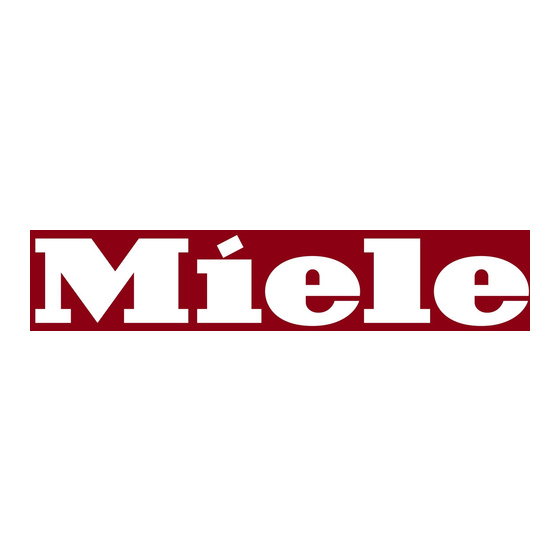Miele DA 270-4 Istruzioni per l'uso e l'installazione - Pagina 6
Sfoglia online o scarica il pdf Istruzioni per l'uso e l'installazione per Cappa di ventilazione Miele DA 270-4. Miele DA 270-4 32. Ventilation system
Anche per Miele DA 270-4: Dimensioni del prodotto (2 pagine), Istruzioni per l'uso e l'installazione (36 pagine), Istruzioni per l'uso e l'installazione (32 pagine), Istruzioni per l'uso e l'installazione (36 pagine)

IMPORTANT SAFETY INSTRUCTIONS
Installation
, WARNING
To reduce the risk of fire only
use metal ductwork.
Any fittings, sealant, or materials
used to install the ductwork must
be made of approved non-flammable
materials.
Provided a larger distance is not
given by the manufacturer of the
cooktop, follow the minimum safety
distances between a cooktop and the
bottom of the hood:
– 22" (550 mm) above electric
cooktops,
– 30" (762 mm) above gas cooktops,
– 26" (650 mm) above an open electric
grill or an open electric boiler/fryer.
If local building codes require a greater
safety distance, follow their
requirement.
If there is more than one appliance
beneath the hood and they have
different minimum safety distances
always select the greater distance.
Do not install this hood over
cooktops burning solid fuel.
Be careful not to damage hidden
electrical wiring or plumbing when
cutting or drilling into the wall or ceiling.
Do not use an extension cord to
connect the appliance to electricity.
Extension cords do not guarantee the
required safety of the appliance,
(e.g. danger of overheating).
6
Never connect an exhaust hood to
an active chimney, dryer vent, vent
flue, or room ventilating ductwork. Seek
professional advice before connecting
an exhaust hood vent to an existing,
inactive chimney or vent flue.
Ducted fans must always be
vented outdoors.
Make sure that the airflow in the
room is sufficient for combustion
and exhausting of all non-electric
heating appliances (water heaters, gas
cooktops, gas ovens, etc.), otherwise
backdrafts may occur. Follow the
heating manufacturer's guidelines and
safety standards or those published by
the National Fire Protection Association
(NFPA) or the American Society for
Heating, Refrigeration and Air
Conditioning Engineers (ASHRAE).
If in doubt, consult an experienced
professional.
